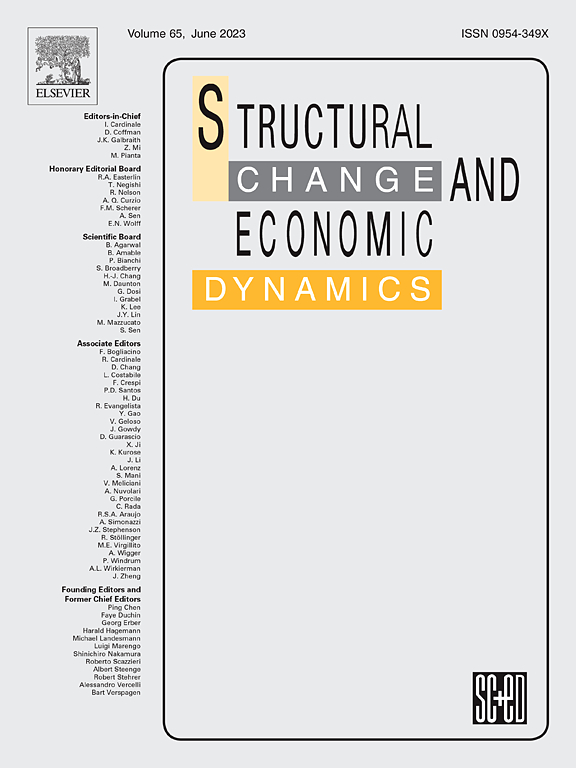Relatedness and economic complexity as tools for industrial policy: Insights and limitations
IF 5
2区 经济学
Q1 ECONOMICS
引用次数: 0
Abstract
The use of relatedness and economic complexity (REC) to advise on industrial policy is expanding. Typically, it leads to the recommendation to (not) support activities that are (un)related to a region’s comparative advantages. Yet, the implications of such use remain largely unaddressed. Drawing on developmental state and innovation studies, I identify two reasons for caution when using REC for policy purposes. First, technological and economic catch-up may require diversification toward unrelated activities. Second, REC focuses exclusively on domestic supply, ignoring demand and international competition. In addition, I highlight conceptual and methodological limitations that are likely to affect REC’s policy implications. Most notably, REC literature might overestimate the magnitude and significance of relatedness, while overlooking the contribution of policy to past diversification outcomes. This paper shows that while REC metrics can provide valuable insights into patterns of structural change, their use in industrial policy requires the concurrent assessment of other crucial elements, including the environmental footprints of diversification options and the dynamics of international supply and demand.
求助全文
约1分钟内获得全文
求助全文
来源期刊

Structural Change and Economic Dynamics
ECONOMICS-
CiteScore
9.60
自引率
4.90%
发文量
159
期刊介绍:
Structural Change and Economic Dynamics publishes articles about theoretical, applied and methodological aspects of structural change in economic systems. The journal publishes work analysing dynamics and structural breaks in economic, technological, behavioural and institutional patterns.
 求助内容:
求助内容: 应助结果提醒方式:
应助结果提醒方式:


